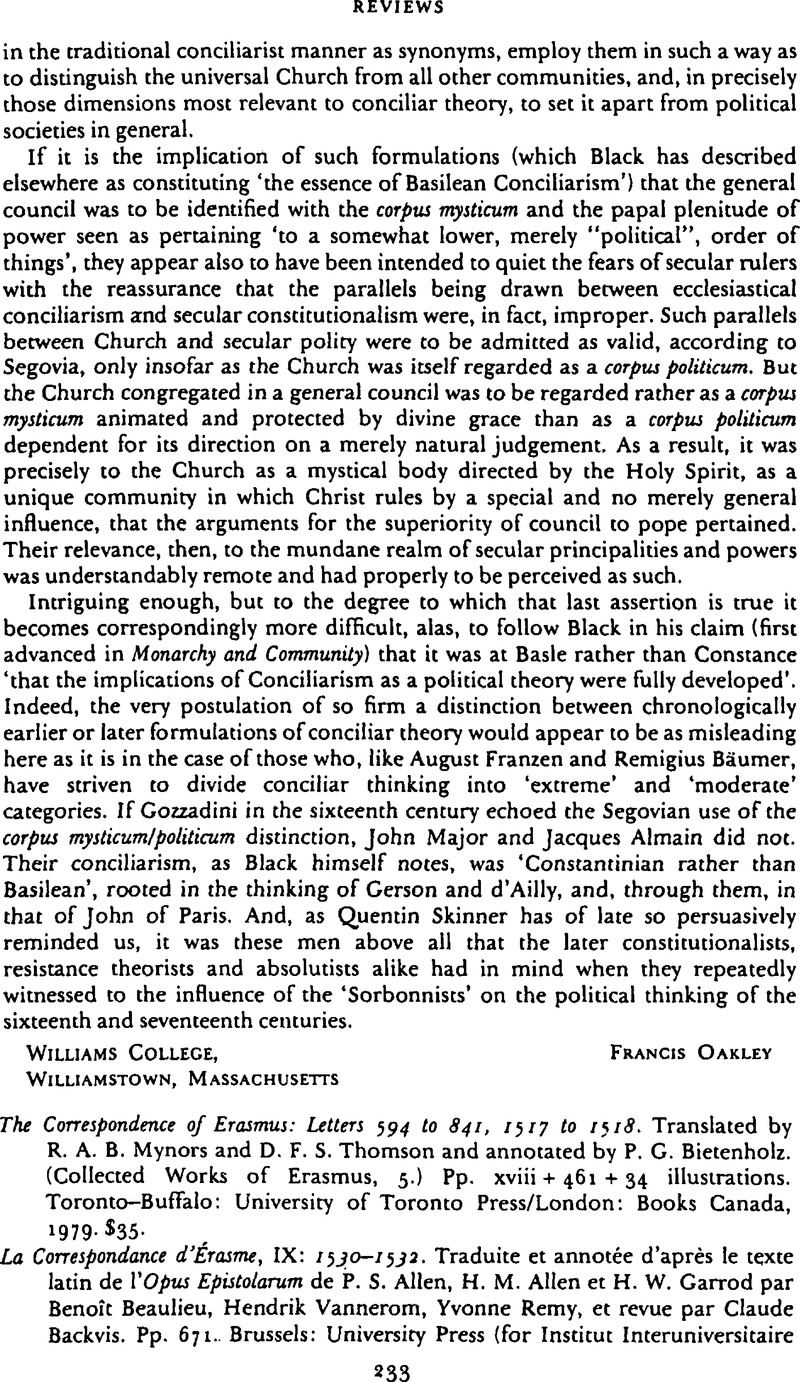No CrossRef data available.
Article contents
The Correspondence of Erasmus: Letters 594 to 841, 1517 to 1518. Translated by R. A. B. Mynors and D. F. S. Thomson and annotated by P. G. Bietenholz. (Collected Works of Erasmus, 5.) Pp. xviii + 461 + 34 illustrations. Toronto–Buffalo: University of Toronto Press/London: Books Canada, 1979. $35. - La Correspondance d'Érasme, IX: 1530–1532. Traduite et annotée d'après le texte latin de l'Opus Epistolarum de P. S. Allen, H. M. Allen et H. W. Garrod par Benoit Beaulieu, Hendrik Vannerom, Yvonne Remy, et revue par Claude Backvis. Pp. 671. Brussels: University Press (for Institut Interuniversitaire pour l'Étude de la Renaissance et de l'Humanisme. Université Libre de Bruxelles et Vrije Universiteit Brussel)/Nieukoop: de Graaf, 1980. Hfl. 140/B.Frs. 2000.
Published online by Cambridge University Press: 25 March 2011
Abstract

- Type
- Reviews
- Information
- Copyright
- Copyright © Cambridge University Press 1981
References
1 One may allow that Pfefferkorn invited abuse: see Hirsch, S. A., ‘Johann Pfefferkorn and the Batde of the Books’, in A Book of Essay, London 1905, 73–115Google Scholar.
2 E.g. in Letter 2569, introd., for L. 2472 read 2473, and in Letter 3544, introd., for 1531 as the date of Agrippa's Declamatio read 1529, and for 1531 as the date of his De incertitudine read (September) 1530 (New College, London, copy now in Dr. Williams's Library). The work by Servetus printed s. 1. 1532 was not a reprint of his De Trinitatis erroribus libri septem (2615, n. 44) but a separate work, Dialogorum de Trinitate libri duo (E. M. Wilbur, History of Unitarianism, Cambridge, Mass., 1945–52, i. 68). It was Tunstall, not Erasmus, who criticised Oecolampadius’ translations (2379, n. 9, where the note in the Opusi has suffered compression). In Letter 2371, n. 18, L. 1383 is a slip for 1382.




